About this park
Bunuba Aboriginal people are the traditional owners and are joint park managers.
Bunuba people call the gorge Dan͟ggu which means, the area where the water is very deep under the cave. The towering white and grey walls of the gorge are breathtaking. Look out for the white rounded sections of limestone, aptly called the meringues!
The best way to experience the impressive gorge is by walking on the sand bank, listening to birds and spotting wildlife. There is one trail to follow and appreciate the view, flora and fauna. This is short challenging walk along an uneven, sandy surface. No wheelchair access.
Dan͟ggu was carved by the Bandaraln͟garri (Fitzroy River) through an ancient limestone barrier reef. It's mind blowing to think that around 250 million years ago much of the Kimberley region was an ancient sea.
If you see park rangers, say hello and ask them about the wildlife and geology of the gorge. You can spot white-bellied sea eagle, or even a rare, purple-crowned fairy-wrens. Freshwater crocodiles, 'freshies', also bask in the sun on riverbanks and exposed rocks – be sure to take some binoculars.
This ancient gorge steeped in Aboriginal culture and meaning is well worth a visit.
Safety information
Plan when to visit. Read this safety information about bushwalking, fishing, paddling and kayaking. Consider travelling with a personal location beacon (PLB). In the event you need to be rescued it could save your life!
When you are entering the Kimberley or Pilbara regions, you are entering crocodile country. Two species of crocodile occur in Western Australia: the estuarine (or saltwater) crocodile and the freshwater crocodile. The estuarine crocodile is the largest living reptile and is considered to be a dangerous predator. Freshwater crocodiles are smaller and not as aggressive. Freshwater crocodiles inhabit Danggu Geikie Gorge. Saltwater crocodiles have not been known to occur in the area, but this may change.
Crocs are common, crocs move around and crocs are deadly so Be Crocwise.
- Download the Crocodiles information guide.
- Pay attention to all warning signs, however just because a sign isn’t there doesn’t mean crocodiles aren’t present.
- If you are unsure don't swim, canoe or use small boats in estuaries, tidal rivers or pools and contact the nearest Parks and Wildlife office.
- If you see a crocodile showing signs of aggressive behaviour, OR is in a Crocodile Control Zone, please contact Parks and Wildlife Service Broome office on (08) 9195 5500.
Gallery
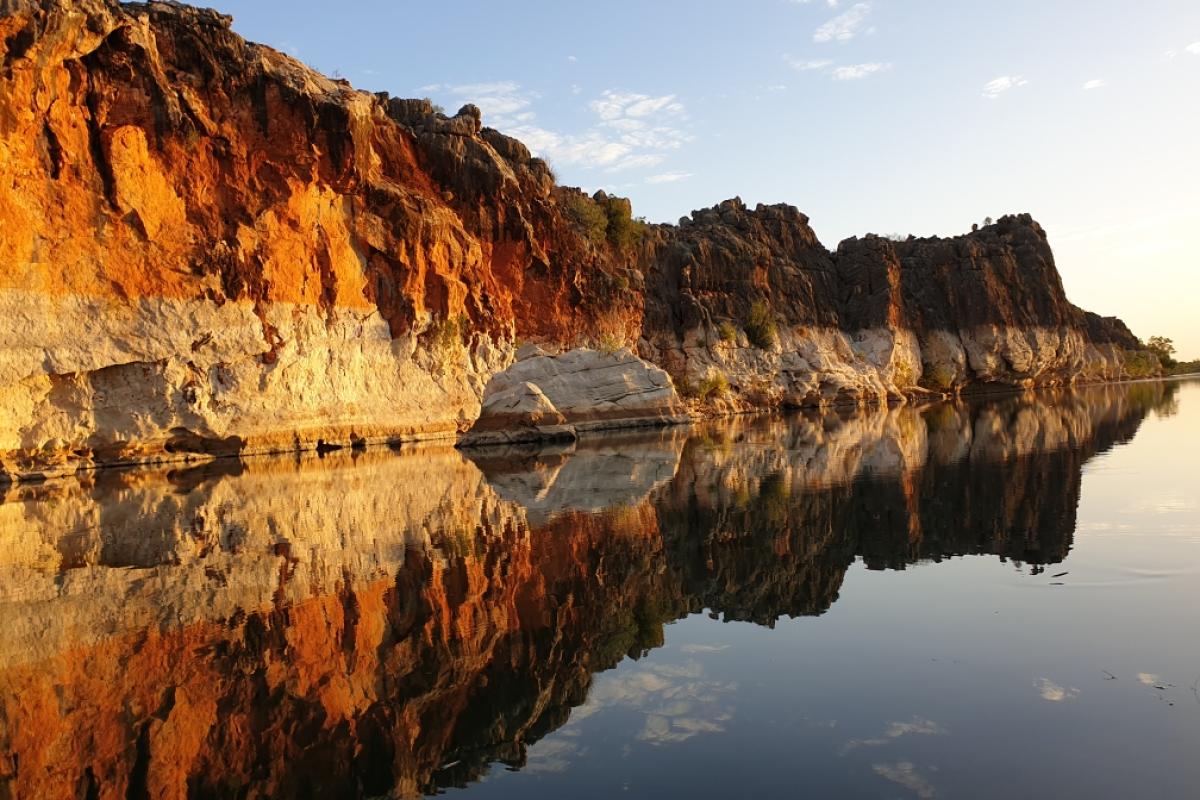
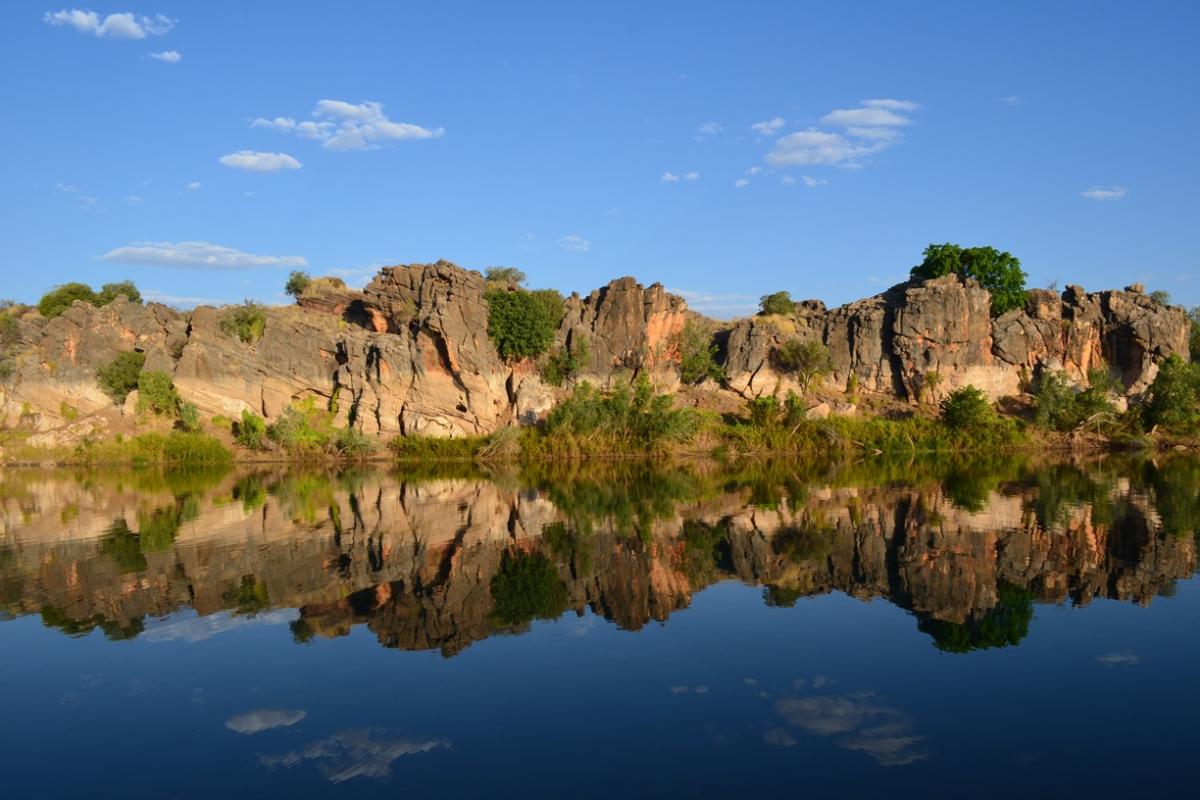
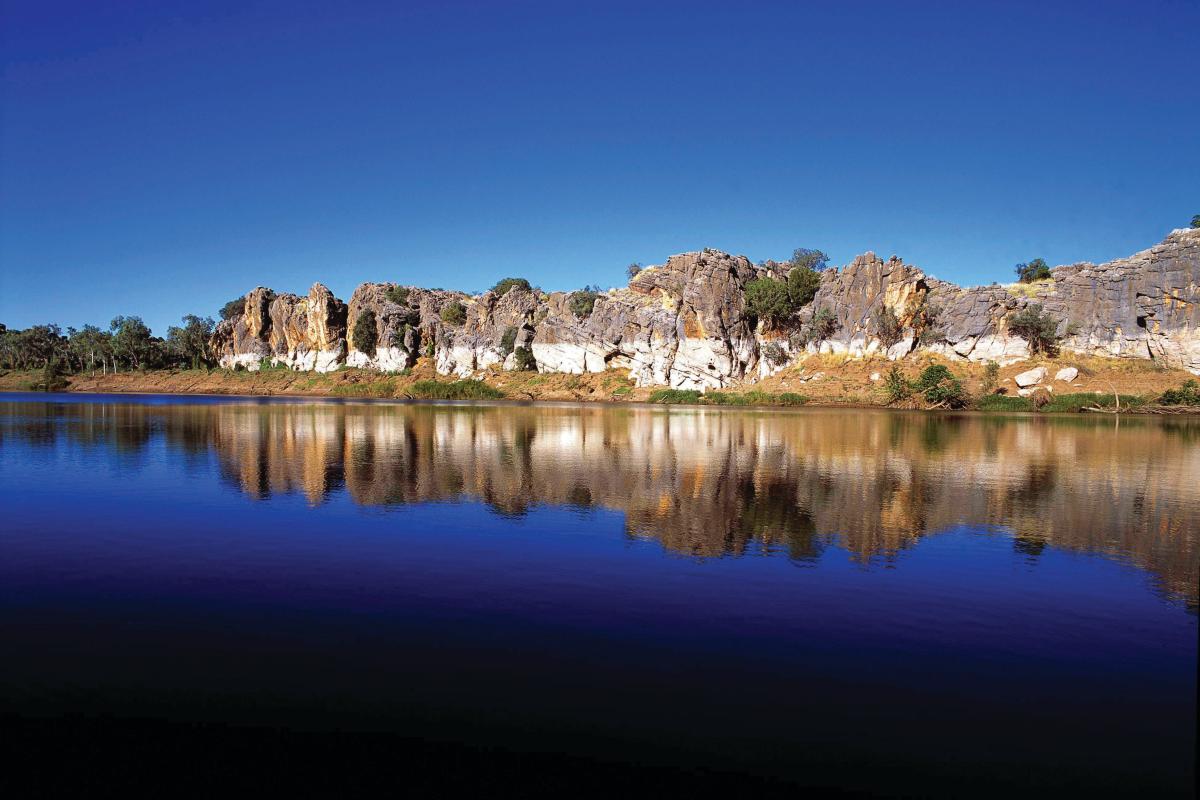
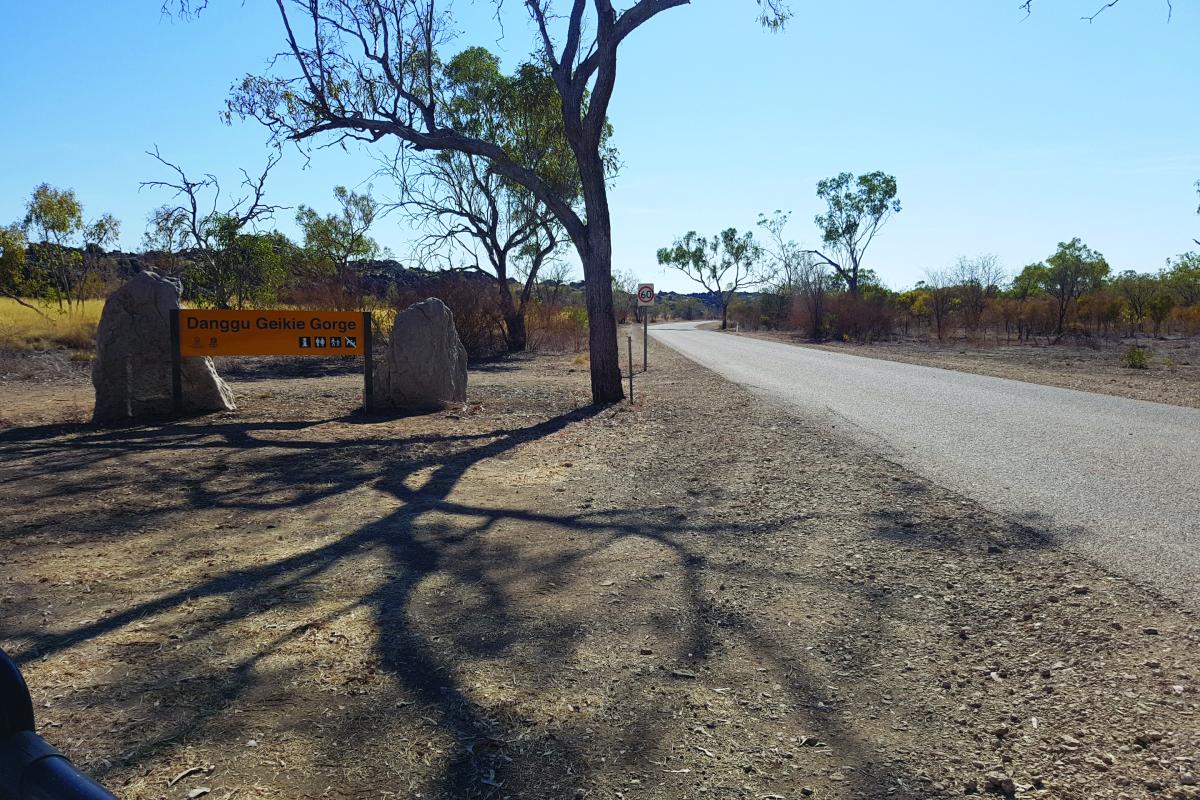
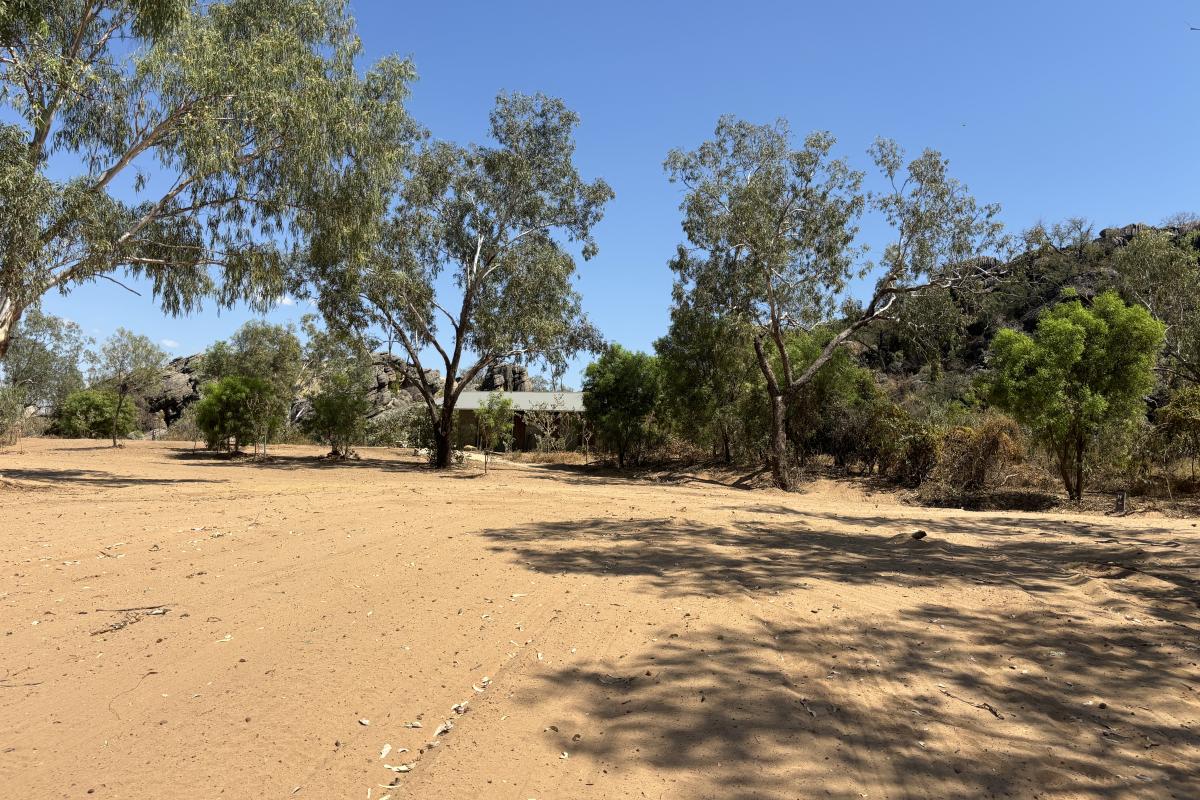
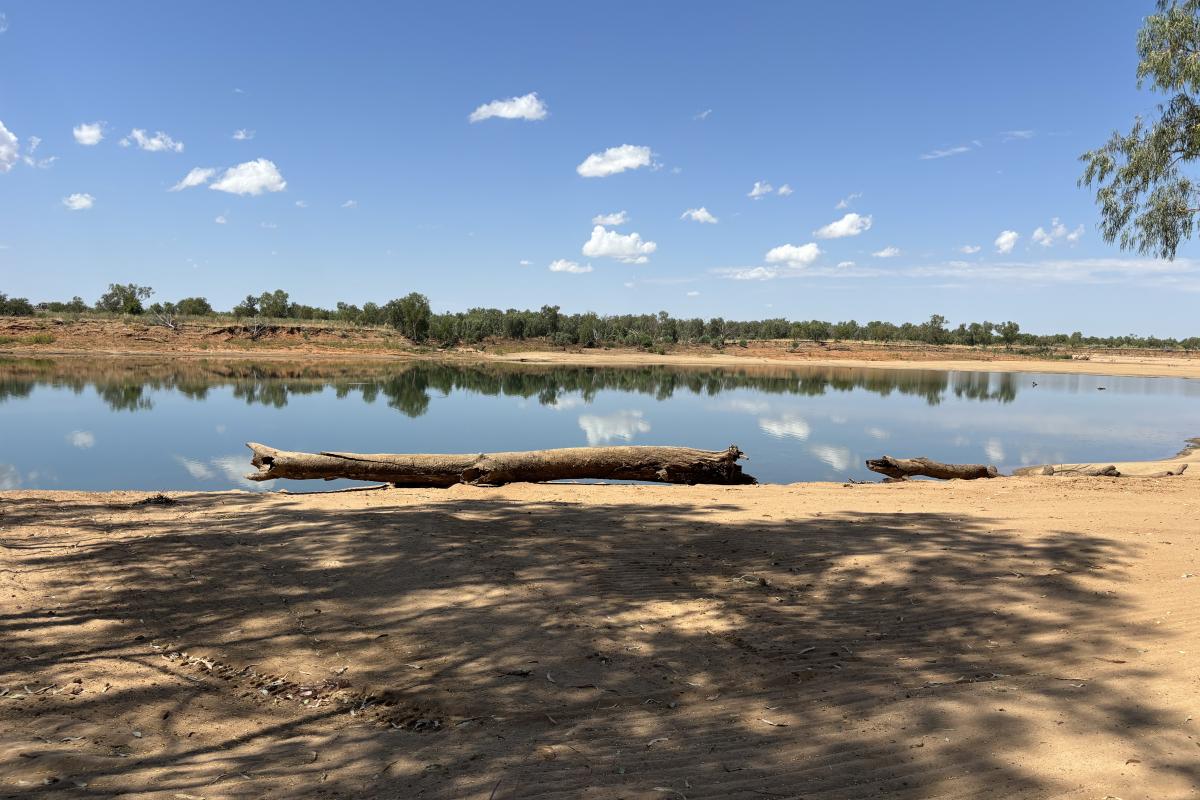
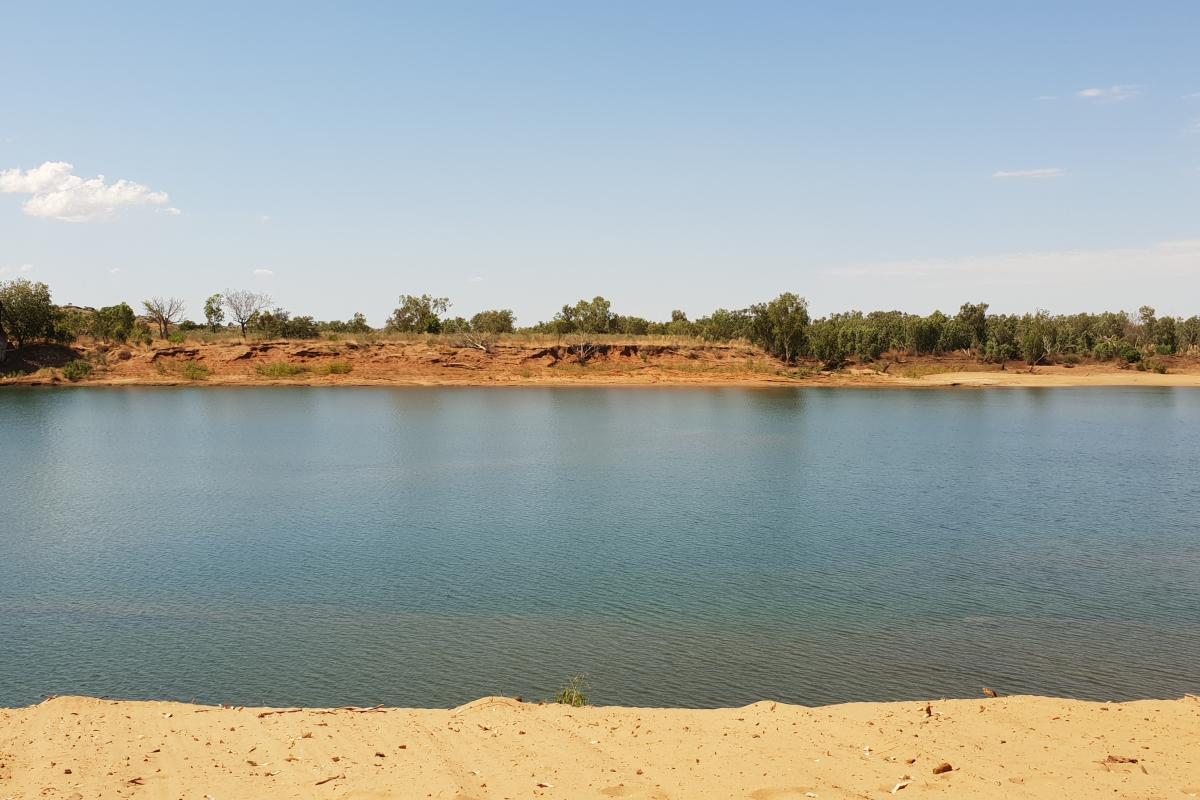
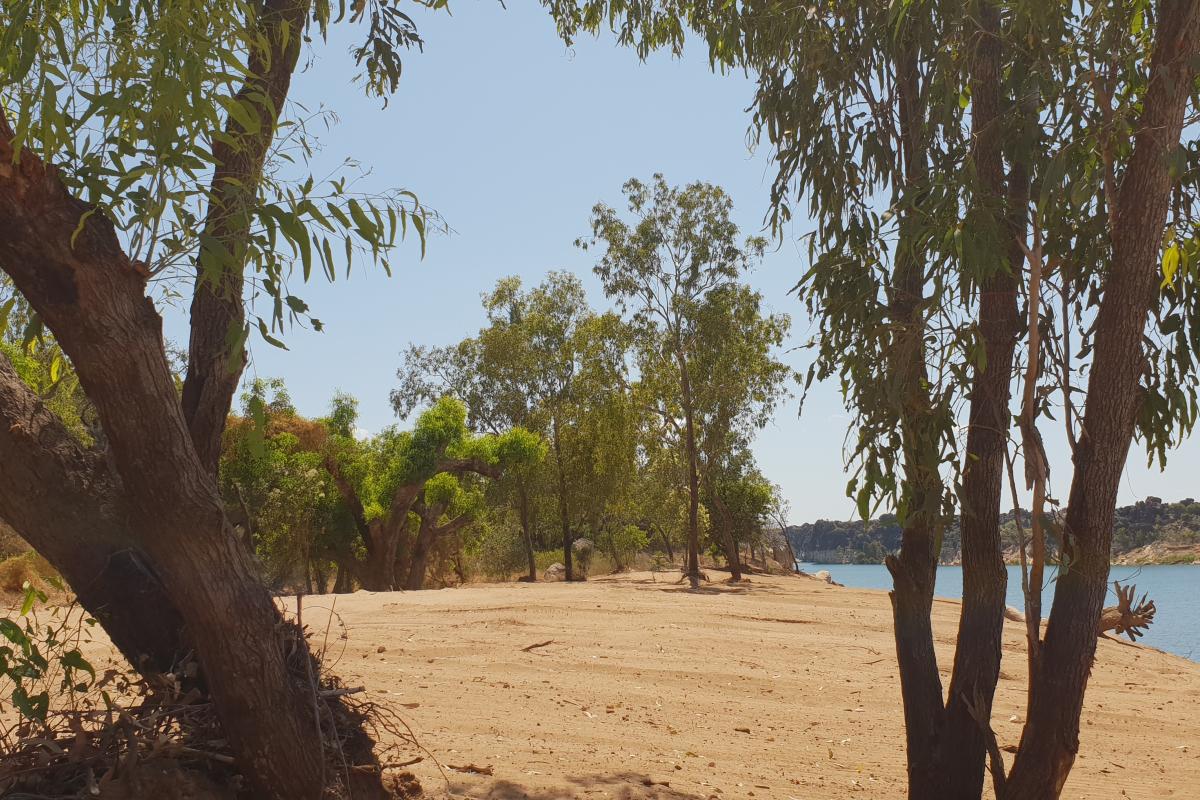
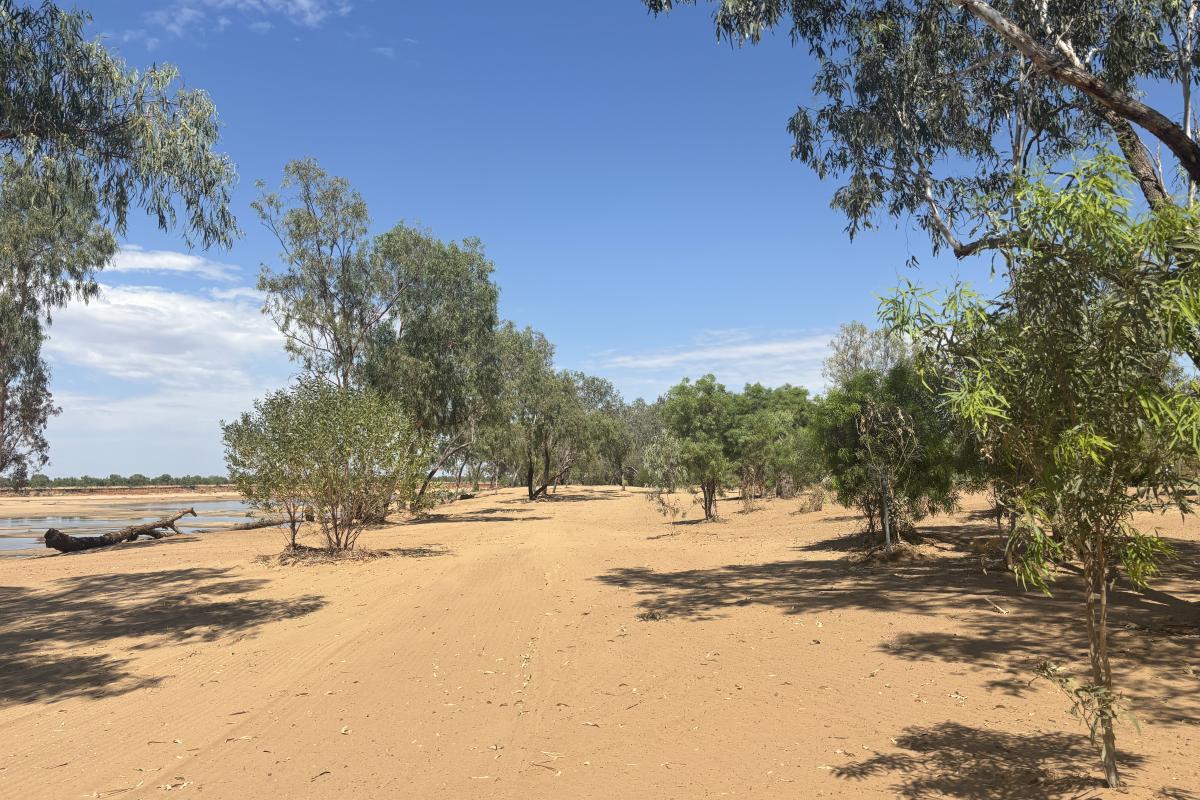
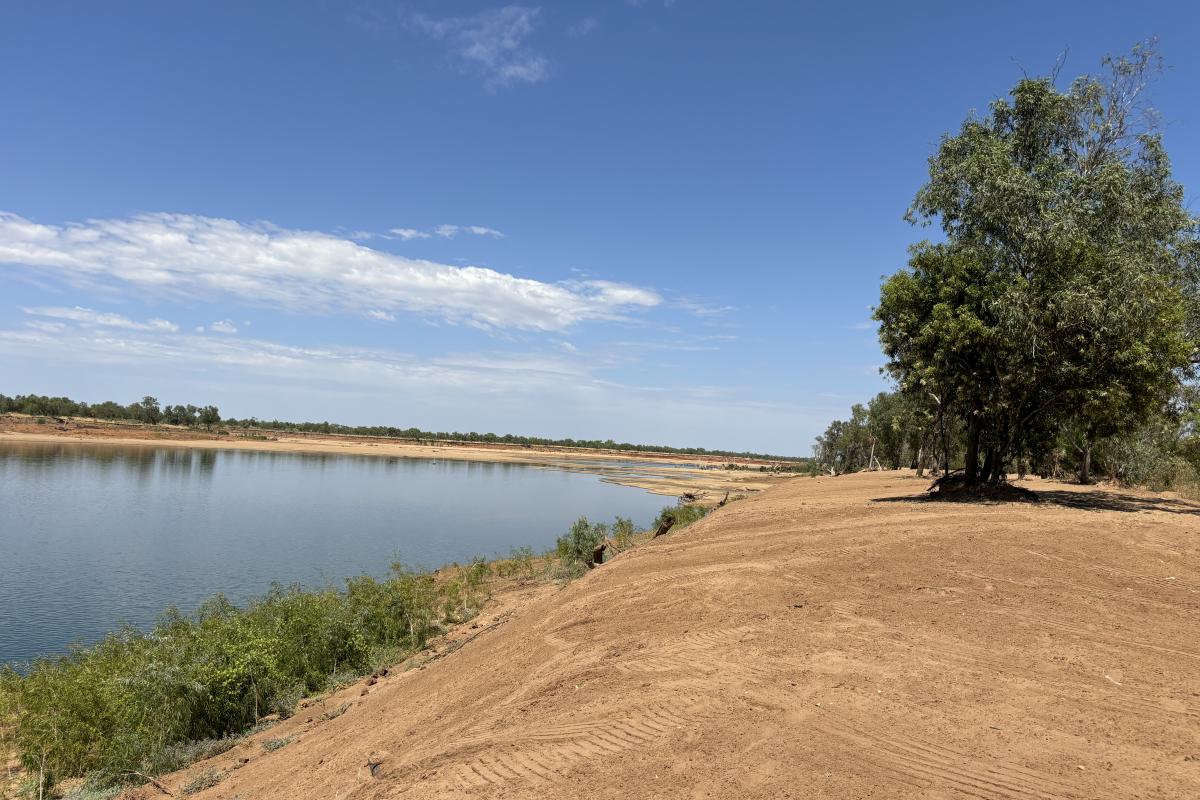
Dan͟ggu Geikie Gorge Recovery Project
Heavy rainfall in late-December 2022 and early-January 2023 associated with ex-Tropical Cyclone Ellie resulted in record flooding of the Fitzroy catchment, and major impacts in Danggu National Park.
Stage 2 of recovery works is completed and the park is currently open with limited facilities (carpark and toilets). Please stay in the designated visitor use area. Read more about the recovery project.
Activities
 Bushwalking
Bushwalking
Plants, wildlife and fungi
Visit the Atlas of Living Australia for a list of species recorded in Dan͟ggu National Park.
Traditional Owners
“Garuwa (water) places and flows hold special cultural significance for Bunuba people. As well as being important places for camping and providing key foods and other resources, many Garuwa are associated with sacred Junba song-lines, or are homes to the Ungguds, the rainbow serpents of the Ngarranggani (creation) time.” DBCA (2019) Jalangurru Manyjawarra Bunuba Muwayi Yarrangu Joint Management Plan 2019. Management plan 92. Department of Biodiversity, Conservation and Attractions, Perth.
We recognise and acknowledge Bunuba people as the traditional owners of Dan͟ggu National Park. Visit Bunuba Country to learn more about their culture.